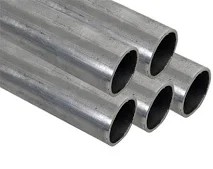Understanding Different Types of Automotive Parts and Their Importance in Vehicles
Dec . 11, 2024 18:10
Understanding Automotive Parts An Introduction to the Heart of Your Vehicle
Automotive parts are the fundamental components that make up a vehicle. Each part plays a crucial role in the operation, safety, and performance of the vehicle. Understanding these parts is essential for anyone interested in cars, whether you're a car owner, a mechanic, or simply an enthusiast. This article will provide an overview of automotive parts, their classifications, and their significance in the automotive industry.
Classification of Automotive Parts
Automotive parts can be classified into various categories based on their function, type, and materials. Here are the main classifications
1. Engine Parts The engine is often considered the heart of the vehicle, and it consists of numerous parts working in unison. Key engine components include the cylinder block, pistons, camshaft, crankshaft, and valves. Each of these parts has a specific role in the combustion process, enabling the engine to generate power.
2. Transmission Components The transmission system transfers power from the engine to the wheels. Important parts in this category include the transmission case, gears, clutches, and torque converters. Automatic transmissions use complex hydraulic systems, while manual transmissions rely on driver input for gear changes.
3. Suspension and Steering Parts These components are essential for vehicle stability, handling, and ride comfort. Major parts include shock absorbers, springs, control arms, and the steering wheel assembly. A well-functioning suspension system ensures a smooth ride and helps maintain tire contact with the road.
4. Braking System Parts Safety is paramount in automotive design, and the braking system is crucial for stopping the vehicle. Key brake parts include brake pads, rotors, calipers, and master cylinders. Different types of braking systems, such as disc brakes and drum brakes, are designed for specific vehicle applications.
5. Electrical and Electronics Modern vehicles incorporate extensive electrical systems for various functions, such as lighting, entertainment, and engine management. Key electrical components include the battery, alternator, starter motor, and various sensors. The rise of electric and hybrid vehicles has further increased the significance of these parts.
6. Body and Interior Parts This category includes the vehicle's outer and inner structures, affecting aesthetics and comfort. Important components are the chassis, bumpers, doors, dashboards, and seating. The quality of these parts can significantly influence the vehicle's safety ratings and overall appeal.
what are automotive parts
7. Exhaust System Components The exhaust system is responsible for directing harmful gases away from the engine and reducing emissions. Key parts include the exhaust manifold, catalytic converter, muffler, and tailpipe. Effective exhaust systems are vital for compliance with environmental regulations.
The Importance of Automotive Parts
Understanding automotive parts is vital for several reasons
- Vehicle Maintenance and Repair Car owners benefit from knowing the basic parts of their vehicle to effectively communicate with mechanics and make informed decisions regarding maintenance and repairs.
- Safety Knowing how vital automotive parts function enhances awareness of vehicle safety. For instance, understanding how brakes work can help drivers recognize signs of brake failure and seek timely repairs.
- Performance Optimization For DIY enthusiasts or those looking to enhance their vehicle's performance, understanding parts allows for better modifications and upgrades. Knowledge of engine components can help in tuning for more power or better fuel efficiency.
- Industry Insights For professionals in the automotive industry, knowledge of automotive parts is essential for product development, quality control, and customer service. Engineers and designers must be well-versed in the functionalities of various parts to innovate and improve vehicle designs.
Conclusion
In conclusion, automotive parts are essential elements that comprise a vehicle, each playing a unique role in ensuring its proper operation. Understanding these parts is crucial for vehicle owners, enthusiasts, and professionals alike. Whether you are looking to maintain your vehicle, enhance its performance, or simply gain knowledge about how cars work, a solid grasp of automotive parts will undoubtedly prove valuable. As technology continues to advance, the design and functionality of automotive parts will evolve, making it an exciting field to follow.
 Afrikaans
Afrikaans  Albanian
Albanian  Amharic
Amharic  Arabic
Arabic  Armenian
Armenian  Azerbaijani
Azerbaijani  Basque
Basque  Belarusian
Belarusian  Bengali
Bengali  Bosnian
Bosnian  Bulgarian
Bulgarian  Catalan
Catalan  Cebuano
Cebuano  Corsican
Corsican  Croatian
Croatian  Czech
Czech  Danish
Danish  Dutch
Dutch  English
English  Esperanto
Esperanto  Estonian
Estonian  Finnish
Finnish  French
French  Frisian
Frisian  Galician
Galician  Georgian
Georgian  German
German  Greek
Greek  Gujarati
Gujarati  Haitian Creole
Haitian Creole  hausa
hausa  hawaiian
hawaiian  Hebrew
Hebrew  Hindi
Hindi  Miao
Miao  Hungarian
Hungarian  Icelandic
Icelandic  igbo
igbo  Indonesian
Indonesian  irish
irish  Italian
Italian  Japanese
Japanese  Javanese
Javanese  Kannada
Kannada  kazakh
kazakh  Khmer
Khmer  Rwandese
Rwandese  Korean
Korean  Kurdish
Kurdish  Kyrgyz
Kyrgyz  Lao
Lao  Latin
Latin  Latvian
Latvian  Lithuanian
Lithuanian  Luxembourgish
Luxembourgish  Macedonian
Macedonian  Malgashi
Malgashi  Malay
Malay  Malayalam
Malayalam  Maltese
Maltese  Maori
Maori  Marathi
Marathi  Mongolian
Mongolian  Myanmar
Myanmar  Nepali
Nepali  Norwegian
Norwegian  Norwegian
Norwegian  Occitan
Occitan  Pashto
Pashto  Persian
Persian  Polish
Polish  Portuguese
Portuguese  Punjabi
Punjabi  Romanian
Romanian  Samoan
Samoan  Scottish Gaelic
Scottish Gaelic  Serbian
Serbian  Sesotho
Sesotho  Shona
Shona  Sindhi
Sindhi  Sinhala
Sinhala  Slovak
Slovak  Slovenian
Slovenian  Somali
Somali  Spanish
Spanish  Sundanese
Sundanese  Swahili
Swahili  Swedish
Swedish  Tagalog
Tagalog  Tajik
Tajik  Tamil
Tamil  Tatar
Tatar  Telugu
Telugu  Thai
Thai  Turkish
Turkish  Turkmen
Turkmen  Ukrainian
Ukrainian  Urdu
Urdu  Uighur
Uighur  Uzbek
Uzbek  Vietnamese
Vietnamese  Welsh
Welsh  Bantu
Bantu  Yiddish
Yiddish  Yoruba
Yoruba  Zulu
Zulu 












